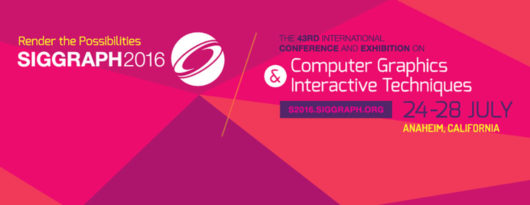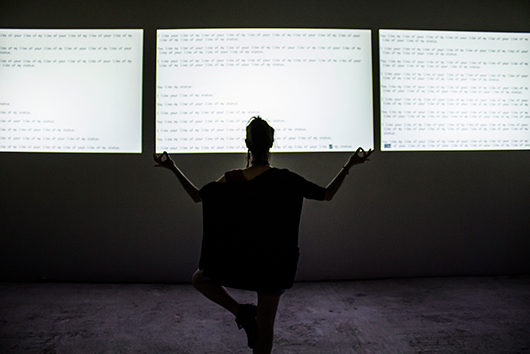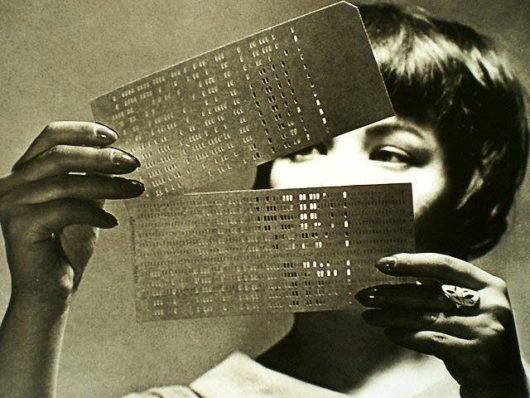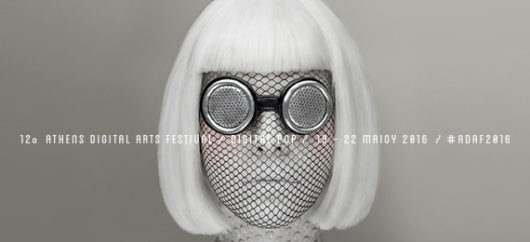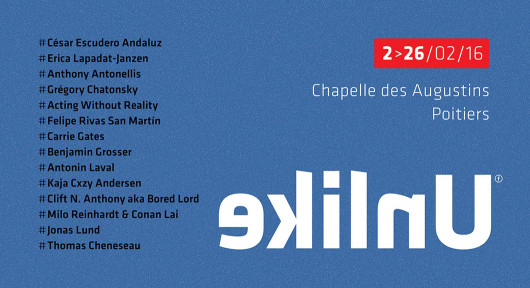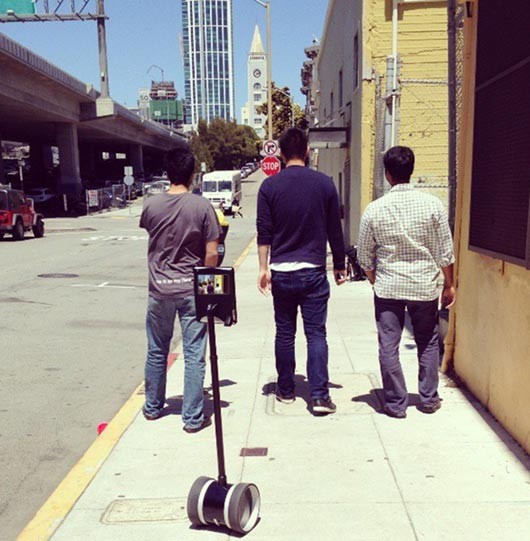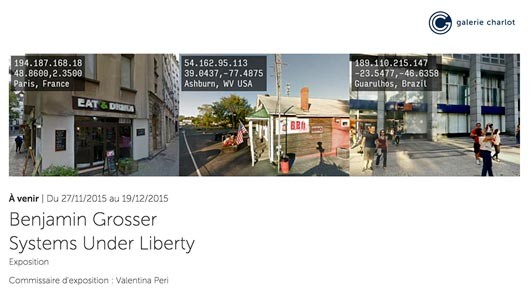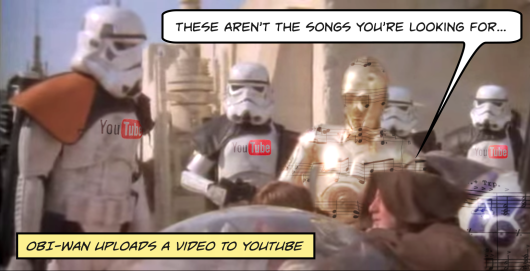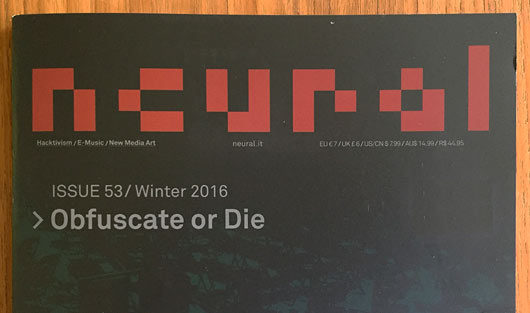
Interview with Neural (Issue 53, Winter 2016)
I’ve given a number of interviews over the last six months but haven’t had a chance to post them here. A few of these are some of the best conversations I’ve had within the interview context (thanks to the great people on the other side!).
First is an interview with Neural as a feature in their Obfuscate or Die issue. This was a conversation with Rachel O’Dwyer of Trinity College and the Dublin Art and Technology Association (DATA), where we talked about everything from X to Y. To read this, you’ll need to obtain a print copy as the interview isn’t online.
Next is a radio conversation with Rebecca Pulsifer at WEFT 90.1 FM as part of the Smile Politely podcast series. This is one of the most enjoyable conversations I’ve had in the live interview format. We talk about art as research, art as activism, and whether I’m an optimist or pessimist when it comes to human agency in the face of computational surveillance.
As part of an exhibition this past spring at Black Mountain College, I was interviewed about my work Computers Watching Movies by Sara Baird for the Media Arts Project. We talk about computer vision, expectation vs. surprise in computational works, and the role of software in daily life.
Last are two interviews mostly about a collaborative research project of mine to develop a computer system that communicates with humans using improvised jazz. I chat with Gary Zidek from WDCB Chicago’s The Arts Section about this ambitious project and how we’re trying to tackle it.
And finally I talk with Elizabeth Lent from Interlochen’s Crescendo Magazine about this same project in a piece titled “Music meets machine: The digital artistry of alumnus Ben Grosser.” We also talk about my experiences as an alum of Interlochen’s National Music Camp, as well as how I blend art and music into one practice.
